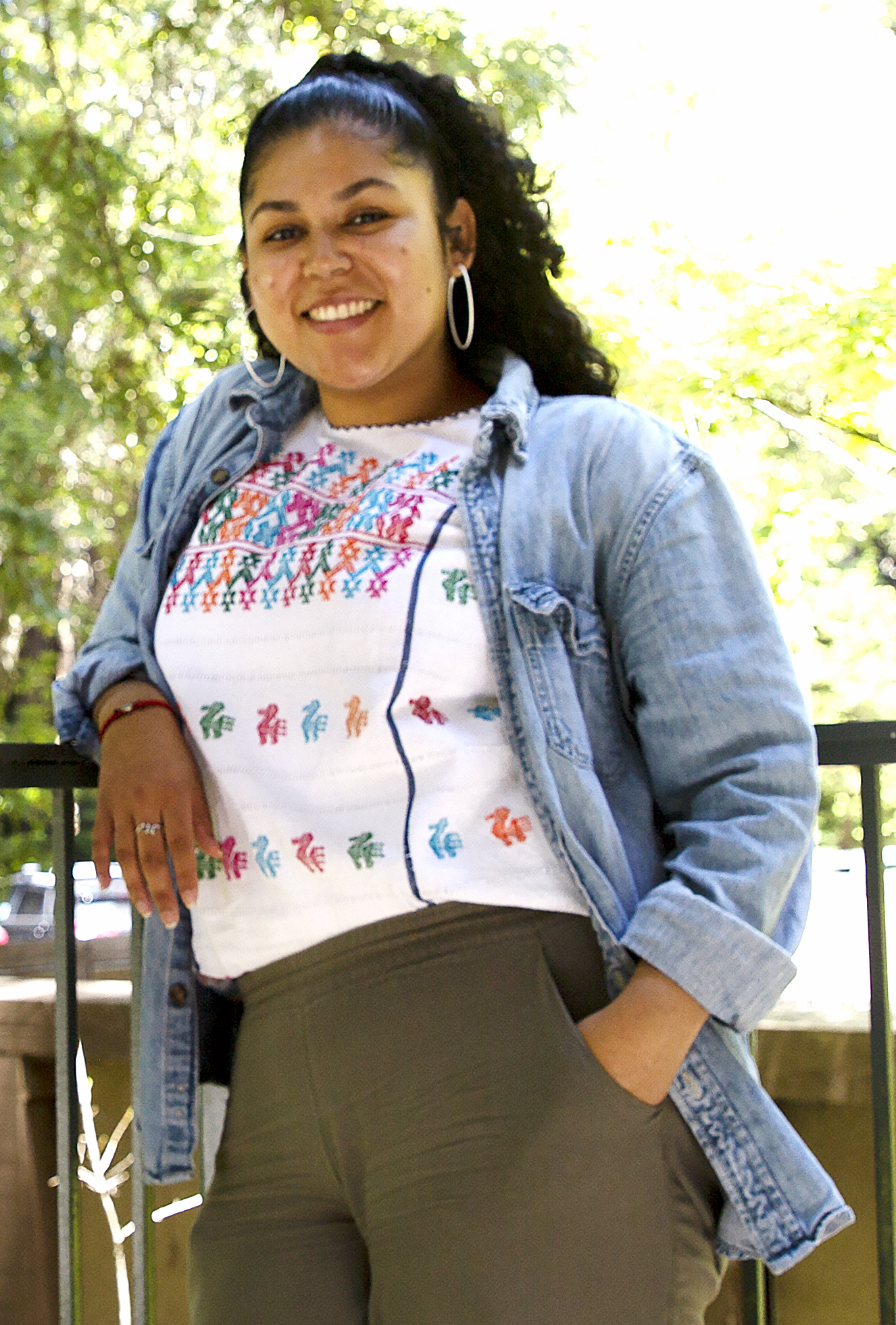Campus News
Raising awareness of ‘deficit thinking’
Undergraduate researcher works to combat harmful perceptions many first-generation students experience

Janely Cardenas began elementary school speaking only Spanish. After all-Spanish-speaking pre-K and kindergarten, 1st grade was English only. Cardenas sat separate from the other students.
“It was a really big transition. I just remember feeling isolated,” said Cardenas (Merrill ‘20, psychology, Latin American and Latinx studies). “I literally had no idea what they were talking about.”
The situation affected how her teachers and fellow students saw her and how she interacted with them. She felt she was seen not as a 6-year-old learning her 1st grade lessons in a new language, but as someone who was less capable.
“A lot of people had a lot of assumptions of me,” she said. “I felt I had to fight against that.”
“Deficit thinking”
That story is how Cardenas explains the concept of “deficit thinking.” The term refers to the presumption that performance challenges arise from innate weaknesses rather than circumstances. It is the subject of her undergraduate research in Professor Rebecca Covarrubias’s Culture and Achievement Collaborative, or “Collab.”
Cardenas has been working with graduate student and fellow collab, Giselle Laiduc (Ph.D. ’22, social psychology), analyzing surveys of undergraduates Laiduc collected for her own thesis. Under Laiduc’s guidance, Cardenas is analyzing the surveys to explore defeicit thinking in interactions between students and tutors.
Tutoring is an important part of the university’s support for student success, and Cardenas has first-hand experience to draw on.
“I’m someone who really uses tutoring a lot,” she says.
Circumstances common for first-generation undergraduates can result in misperceptions by tutors, she says. And the result can hamper academic progress.
She offers the example of test review. Tutors often encourage students to attend group review sessions before important tests. College students who have jobs, however, might not be able to fit an additional appointment into a busy schedule. A tutor might perceive a student who misses a prep session as undisciplined, when they were in fact making sure they could pay rent.
Cardenas’ work provides an example of strong, compassionate leadership for her fellow students, Covarrubias said.
“She is also pushing us to think more critically about meaningful ways to better serve and conduct research in collaboration with low-income, first-generation students of color,” she said. “Cardenas brings a keen understanding of the critical issues that first-generation students confront at UC Santa Cruz.”
Like many of the student scholars in the Collab, she draws from her own expertise and that of her community to think carefully and sensitively about how to improve the collective experience of first-generation students.
“I can make a difference here”
The Collab partners with the campus Learning Support Services department. Covarrubias credits Charis Herzon, director of learning support services, for making it possible to develop and implement evidence-based practices built on the students’ research.
Cardenas hopes her research might influence tutors and others in teaching roles to be aware of their perceptions and find ways to adapt to the circumstances of their students.
“I can actually make a difference here,” Cardenas said. “I can highlight these deficit attributions and how harmful they are.”
Cardenas plans to work toward a Ph.D. and seek a professorship combining her current dual majors, psychology and Latin American/Latinx studies, to examine how identity affects mental health and overall well-being.